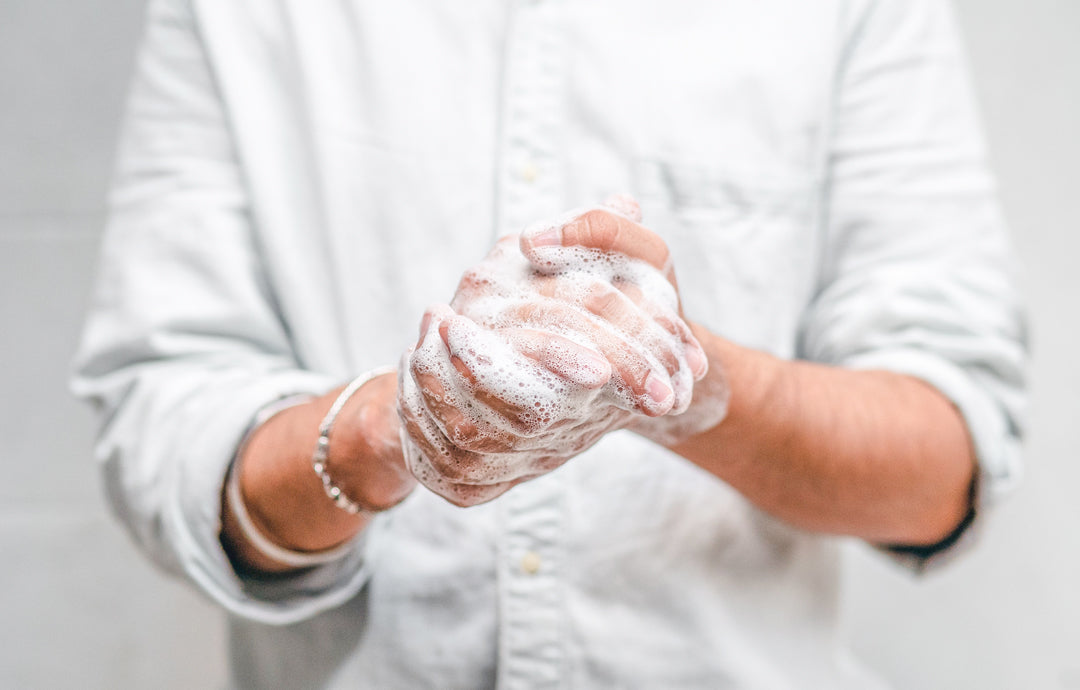How To Get Resin Off Hands

Introduction:
Uh-oh, got resin stuck to your hands? Don't panic! We've got your back. Dealing with resin residue may seem like a challenge, but fear not! In this article, we'll explore a down-to-earth approach using unconventional yet effective methods to clean that sticky situation away. Get ready to bid farewell to resin-covered hands!
7 Helpful Tips:
Soap and Water: The Classic Combo
Let's kick things off with the trusty, tried-and-true method of using soap and water. Start by thoroughly wetting your hands with warm water. Grab a bar of soap or pump some liquid soap onto your hands and lather up, making sure to cover every nook and cranny. Rub your hands together vigorously for at least 20-30 seconds. Rinse off the soap under warm running water, continuing to scrub away any lingering resin while focusing on the sticky spots.

Wet Paper Towel: Wipe It Away
If the soap and water method didn't do the trick completely, it's time to reach for a wet paper towel. Dampen a paper towel under running water or soak it in a bowl of warm water. Gently rub the resin-covered areas with the damp towel, applying a bit of pressure to loosen the residue. Wipe away the resin as it starts to lift off your skin. Repeat this process until your hands are resin-free.

Orange Hand Sanitizer: Citrus Power
Next up, harness the power of citrus with an orange-scented hand sanitizer. Look for a hand sanitizer that contains natural orange oil. Squeeze a liberal amount onto your hands and rub it in, ensuring you cover all the resin-affected areas. The orange oil acts as a natural solvent, helping to break down the resin. Let the hand sanitizer sit on your skin for a minute or two, allowing it to work its magic.

Scrub Away the Residue

Soda Fizz: Dissolve the Resin
Believe it or not, soda can be a secret weapon in your quest to remove resin. Pour a small amount of soda, preferably cola, onto a clean cloth or sponge. Gently rub the cloth over the resin-covered areas, allowing the carbonation and acidity of the soda to break down the resin. Continue until the resin is no longer visible, then rinse your hands under warm water.

Vinegar Solution: Resin Buster
If all else fails, turn to the power of vinegar. Create a solution by mixing equal parts vinegar and warm water in a bowl or container. Soak your hands in the solution for 5-10 minutes, allowing the vinegar to soften the resin. Using a soft brush or toothbrush, gently scrub your hands to dislodge the remaining resin. Rinse your hands thoroughly with warm water to eliminate any vinegar smell, and pat dry.

Sugar scrub:

Conclusion:
Cleaning resin off your hands may sound like a sticky nightmare, but with a bit of creativity and a down-to-earth approach, it becomes a piece of cake. From the classic soap and water to the unconventional power of orange hand sanitizer and soda, these methods offer effective ways to bid farewell to resin residue. So, roll up your sleeves, grab those cleaning materials, and reclaim your clean and resin-free hands!
FAQ:
Q: Is resin harmful to my skin?
A: While resin itself is generally considered safe, prolonged exposure or contact with resin can cause skin irritation or allergies for some individuals. It's always a good practice to wear gloves when working with resin to protect your skin. If resin comes into contact with your skin, promptly clean it off to minimize any potential irritation.
Q: Can I use other types of hand sanitizers instead of orange hand sanitizer?
A: Yes, you can use other types of hand sanitizers if you don't have access to orange-scented hand sanitizer. Look for hand sanitizers that contain natural citrus oils or have a higher alcohol percentage to assist in breaking down the resin.
Q: Will using soda damage my skin?
A: No, soda is generally safe to use on the skin. However, it's essential to rinse your hands thoroughly with warm water after using soda to remove any remaining residue. Additionally, individuals with sensitive or dry skin may want to moisturize their hands afterward to prevent dryness.
Q: What if these methods don't work?
A: In rare cases where resin is deeply embedded or exceptionally stubborn, it may be challenging to remove completely using these methods alone. If the residue persists, consider seeking professional advice or consulting a healthcare provider for further guidance.
Q: Are there any precautions I should take when using solvents like rubbing alcohol or nail polish remover?
A: Absolutely! When using solvents, such as rubbing alcohol or nail polish remover containing acetone, ensure proper ventilation by working in a well-ventilated area. Follow the instructions provided on the product labels, and avoid prolonged exposure or direct contact with these substances on your skin. If you have sensitive skin or any allergies, consider using milder alternatives or consult a healthcare professional before attempting to use solvents.
Remember, everyone's skin is different, so it's important to pay attention to your skin's response and make any necessary adjustments to keep it healthy and free from irritation during and after the resin cleanup process.



Leave a comment